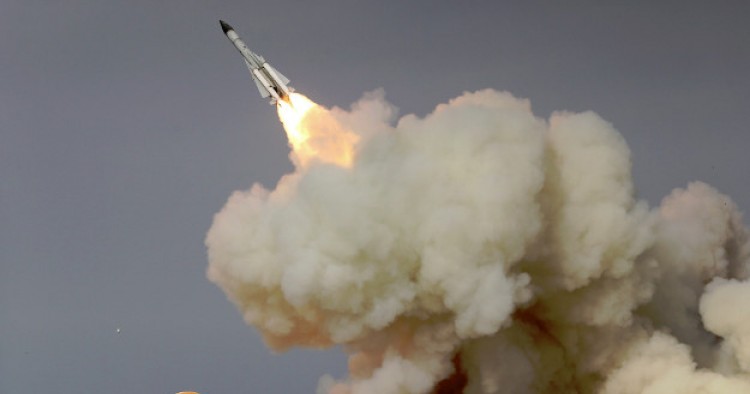U.S. defense officials say the “midget” submarine from which Iran this week tried to launch a cruise missile was built on a North Korean design. The Iranian launch of Jask-2 missile, the first underwater missile launch by Iran to date, reportedly was unsuccessful. Pyongyang successfully launched a missile from a submarine for the first time two years ago. The ballistic missile Iran test fired in late January – which triggered a strong response from the Trump administration – was also said to have been based on a North Korean model. Last summer, Iran test-fired another missile similar to a North Korea’s most advanced missile called Musudan.
Comment: Cooperation between Tehran and Pyongyang, especially in the military field, has been a matter of grave concern for Washington and its allies for a long time. A Congressional Research Service report last year noted that Iran “has developed a close working relationship with North Korea on many ballistic missile programs.” Last week, Iran’s Defense Minister Brigadier General Hossein Dehghan revealed that Iran imported supplies for the country’s shipping industry from North Korea.
The extent of cooperation between North Korea and Iran – particularly in the nuclear and missile technology – is not well-established. But the two countries have lately boosted their bilateral cooperation and diplomatic engagements.
On February 19, Iranian Parliament Speaker Ali Larijani met with his North Korean counterpart Choe Thae-bok in Tehran and the two sides called for further strengthening ties between their countries. “Americans constantly want to pressure independent countries and they don’t want peace to be established in different regions,” Larijani told the North Korean official. “Therefore, the Islamic Republic’s approach is to create peace in the Middle East and the Korean peninsula. And we oppose the United States’ provocative actions in this regard,” he added. The Islamic Consultative Assembly News Agency (Iranian parliament’s official website) also quoted Thae-bok as stressing that close relations between Iran and North Korea would be instrumental in “neutralizing” Washington’s policies against the two countries.
On January 30, Alaeddin Boroujerdi, the Chairman of the Iranian Parliament's National Security and Foreign Policy Commission, told North Korea’s Ambassador to Tehran Kang Sam Hyon that “Iran and North Korea are at a united front against interferences and bullying by America and its allies and they resist different kinds of pressures and sanctions imposed by the West on both countries.” In the meeting, Boroujerdi, who is also the head of the parliamentary friendship group of Iran and North Korea, urged that officials of the two countries, including lawmakers, should meet more often to discuss issues of mutual concern and strengthen ties. The Korean diplomat, according to the Iranian media, said that expanding ties with Tehran in the political, economic and defense arenas was among Pyongyang’s top priorities, and added: “America is the source of instability and insecurity in different parts of the world, and North Korea backs Iran’s positions to oppose America’s bullying and imperialistic interference.”
The Middle East Institute (MEI) is an independent, non-partisan, non-for-profit, educational organization. It does not engage in advocacy and its scholars’ opinions are their own. MEI welcomes financial donations, but retains sole editorial control over its work and its publications reflect only the authors’ views. For a listing of MEI donors, please click here.













